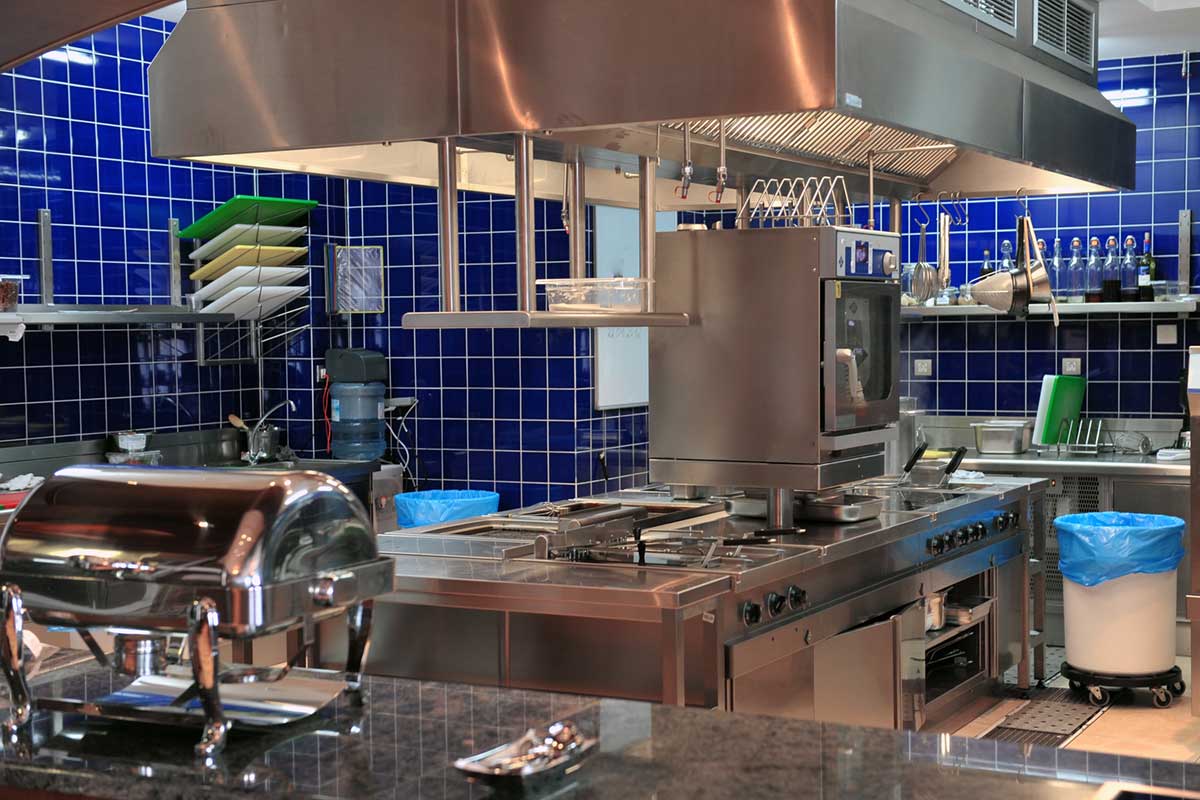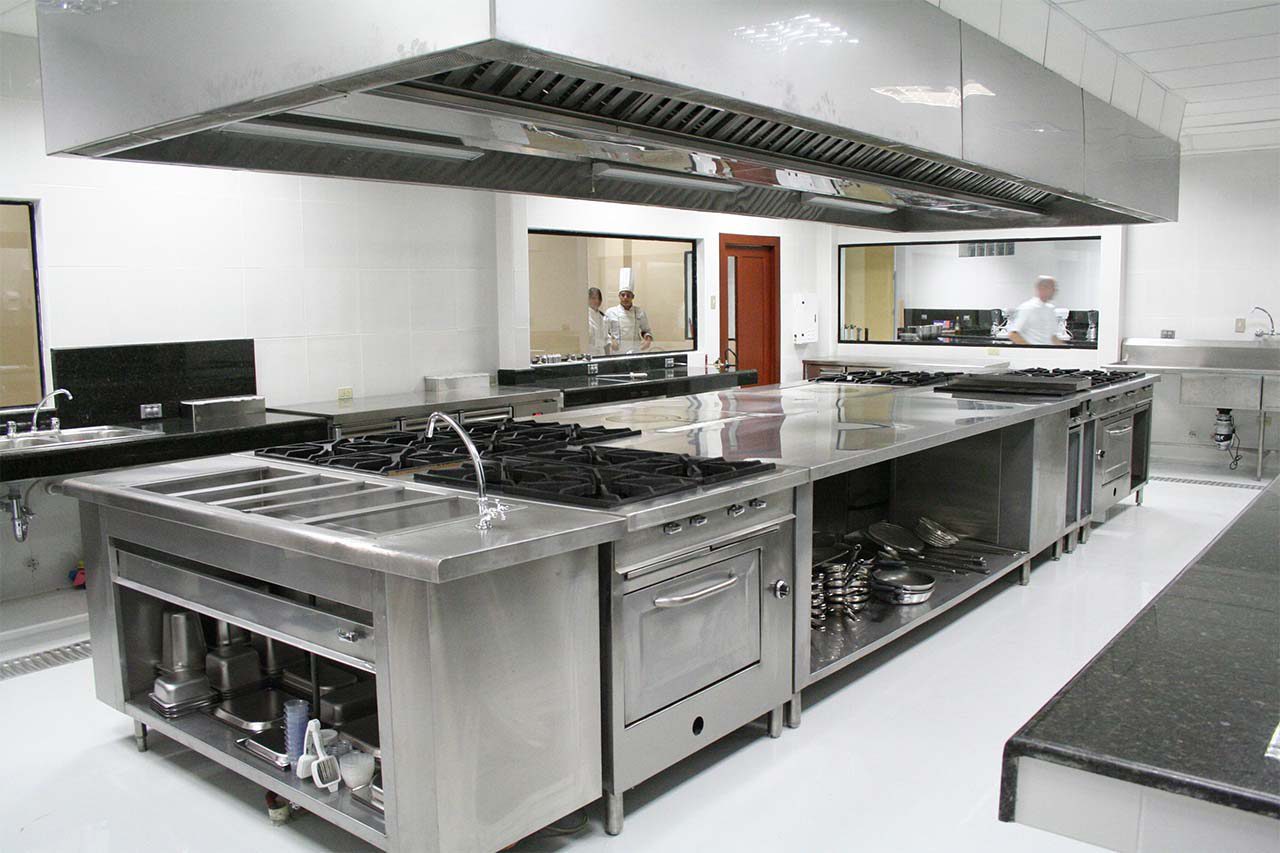The Importance of Commercial Kitchen Cabinet Cleaners

Maintaining a clean and hygienic commercial kitchen is crucial for any food service establishment. This includes ensuring that kitchen cabinets, which are frequently exposed to food spills, grease, and other contaminants, are thoroughly cleaned. Commercial kitchen cabinet cleaners are specifically designed to tackle these unique challenges, providing a safe and effective solution for maintaining a clean and healthy food preparation environment.
The Unique Challenges of Cleaning Commercial Kitchen Cabinets
Commercial kitchen cabinets face unique challenges that require specialized cleaning solutions. The high volume of food preparation and storage in commercial kitchens leads to frequent spills, grease buildup, and the accumulation of food particles. These contaminants can create a breeding ground for bacteria and other microorganisms, posing a serious risk to food safety. Additionally, the constant exposure to heat, moisture, and harsh cleaning agents can damage the cabinet surfaces, leading to discoloration, warping, and deterioration.
The Potential Hazards of Using Harsh Chemicals in a Food Preparation Environment
Using harsh chemicals to clean commercial kitchen cabinets can pose a significant risk to food safety. These chemicals can leave behind residues that can contaminate food and potentially cause illness. Moreover, the strong fumes emitted by harsh cleaners can irritate the eyes, nose, and throat, creating an unhealthy work environment for kitchen staff.
The Benefits of Using a Specialized Cleaner Designed for Commercial Kitchens, Commercial kitchen cabinet cleaner
Commercial kitchen cabinet cleaners are formulated with specialized ingredients that effectively remove grease, grime, and food particles without leaving behind harmful residues. These cleaners are also designed to be gentle on cabinet surfaces, preventing damage and extending their lifespan. Using a specialized cleaner for commercial kitchens offers several benefits:
- Enhanced Hygiene: Commercial kitchen cabinet cleaners effectively remove bacteria and other microorganisms, ensuring a clean and hygienic food preparation environment.
- Food Safety: Specialized cleaners are formulated to be safe for use in food preparation areas, minimizing the risk of food contamination.
- Reduced Cleaning Time: Commercial cleaners are designed to work quickly and efficiently, reducing the time required for cleaning and allowing staff to focus on other tasks.
- Protection of Cabinet Surfaces: Specialized cleaners are gentle on cabinet surfaces, preventing damage and extending their lifespan.
- Improved Aesthetics: Regular cleaning with a commercial kitchen cabinet cleaner helps maintain the appearance of cabinets, creating a clean and professional look for the kitchen.
Key Features of Commercial Kitchen Cabinet Cleaners

Commercial kitchen cabinet cleaners are specifically formulated to tackle the tough grime and grease that accumulate in these high-traffic areas. These cleaners are designed to effectively remove food residue, oil splatters, and other stubborn stains, leaving your cabinets looking clean and sanitized.
Types of Commercial Kitchen Cabinet Cleaners
The effectiveness of a commercial kitchen cabinet cleaner depends on its ingredients and properties. These cleaners can be broadly categorized into two main types: natural cleaners and cleaners containing powerful solvents.
- Natural Cleaners: These cleaners utilize plant-based ingredients, such as citrus extracts, baking soda, and vinegar, to break down grease and grime. They are generally considered safer for the environment and less harsh on surfaces, making them suitable for sensitive materials like wood cabinets. However, they may not be as effective against heavy grease buildup or stubborn stains as cleaners containing solvents.
- Solvent-Based Cleaners: These cleaners often contain powerful solvents like ammonia, alcohol, or bleach, which are highly effective in dissolving grease and grime. They are typically stronger and faster-acting than natural cleaners, but they can also be more damaging to surfaces and potentially harmful if not used properly.
Safety Precautions
It is crucial to take necessary safety precautions when using commercial kitchen cabinet cleaners. Always read and follow the manufacturer’s instructions carefully, as different cleaners have different safety guidelines.
- Ventilation: Always use commercial kitchen cabinet cleaners in a well-ventilated area to prevent inhaling harmful fumes. Open windows and doors to ensure adequate air circulation.
- Gloves and Eye Protection: Wear protective gloves and eye protection to prevent skin irritation and eye damage. Some cleaners can be corrosive or irritating to the skin and eyes.
- Testing: Before applying any cleaner to the entire cabinet surface, test it on a small, inconspicuous area to ensure it does not damage the finish. This is particularly important for delicate or antique cabinets.
- Storage: Store commercial kitchen cabinet cleaners in a secure location, out of reach of children and pets. Keep them away from heat and direct sunlight to prevent degradation.
Best Practices for Using Commercial Kitchen Cabinet Cleaners

Commercial kitchen cabinet cleaners are specifically designed to tackle the tough grease, grime, and food residue that accumulate in high-traffic areas. To ensure maximum effectiveness and maintain the longevity of your cabinets, it’s crucial to follow best practices when using these cleaners.
Step-by-Step Guide to Cleaning Commercial Kitchen Cabinets
Before embarking on the cleaning process, it’s important to gather the necessary supplies. These include a commercial kitchen cabinet cleaner, microfiber cloths, a soft-bristled brush, and a bucket of warm water.
- Preparation: Clear the cabinet shelves and drawers of any items, ensuring a clear workspace. Protect surrounding surfaces with a drop cloth or plastic sheeting.
- Pre-Cleaning: Use a damp microfiber cloth to remove any loose debris or dust from the cabinet surfaces.
- Application: Apply the commercial kitchen cabinet cleaner directly to the affected areas, focusing on areas with heavy grease or grime.
- Scrubbing: Use a soft-bristled brush to gently scrub the surfaces, paying attention to corners and crevices. For stubborn stains, allow the cleaner to dwell for a few minutes before scrubbing.
- Rinsing: Thoroughly rinse the surfaces with warm water, ensuring all traces of the cleaner are removed.
- Drying: Dry the cabinets with a clean microfiber cloth, removing any excess moisture.
Cleaning Methods for Different Cabinet Materials
The cleaning methods used should be tailored to the specific material of the kitchen cabinets.
| Material | Cleaning Method | Stainless Steel | Use a commercial stainless steel cleaner, followed by a microfiber cloth. Avoid abrasive cleaners or scouring pads. | Laminate | Apply a mild soap and water solution to the surface, followed by a thorough rinse. Avoid harsh chemicals or abrasive cleaners. | Wood | Use a wood-specific cleaner or a mixture of mild soap and water. Apply with a soft cloth and dry thoroughly. | Painted Cabinets | Use a gentle cleaner specifically formulated for painted surfaces. Avoid harsh chemicals or abrasive cleaners that can damage the paint. |
|---|
Commercial Kitchen Cabinet Cleaning Checklist
Maintaining clean and hygienic commercial kitchen cabinets is essential for preventing the spread of bacteria and maintaining a professional appearance. Here’s a checklist to ensure consistent cleaning practices:
- Daily Cleaning: Wipe down cabinet surfaces with a damp microfiber cloth to remove any spills or food debris.
- Weekly Cleaning: Deep clean cabinets with a commercial kitchen cabinet cleaner, focusing on areas with heavy grease or grime.
- Monthly Cleaning: Thoroughly clean all cabinet shelves and drawers, removing any accumulated debris.
- Regular Inspection: Inspect cabinets for any signs of damage or wear, such as scratches or chips.
Commercial kitchen cabinet cleaners are essential for maintaining a hygienic and aesthetically pleasing environment. These cleaners are specifically formulated to tackle grease, grime, and food stains that are common in high-traffic kitchens. While these cleaners are effective, they should be used cautiously on delicate finishes, such as white washed cabinet doors , which may require a gentler approach.
Choosing the right cleaner for the specific cabinet material and finish is crucial to ensure both cleanliness and preservation of the aesthetic appeal.
Commercial kitchen cabinet cleaners are essential for maintaining a hygienic and professional environment. These cleaners effectively remove grease, grime, and food residue from cabinet surfaces, ensuring a clean and sanitized workspace. While maintaining the cleanliness of cabinets is crucial, the aesthetics of the cabinets are also important, and incorporating a blue 2 door cabinet can add a touch of vibrancy and modernity to the kitchen.
By using a high-quality commercial kitchen cabinet cleaner, the blue cabinet’s color and finish will remain vibrant and pristine, enhancing the overall visual appeal of the kitchen.
